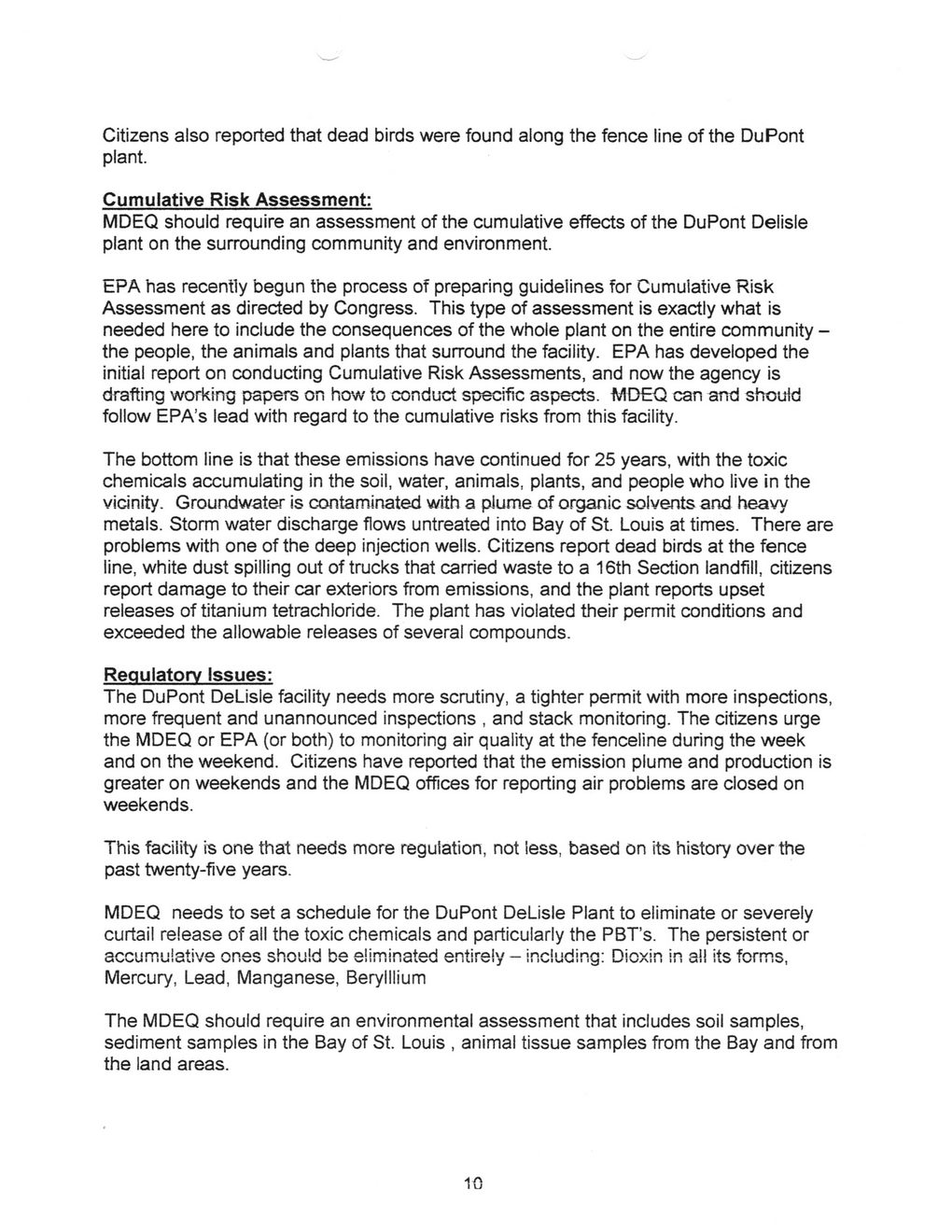This text was obtained via automated optical character recognition.
It has not been edited and may therefore contain several errors.
Citizens also reported that dead birds were found along the fence line of the DuPont plant. Cumulative Risk Assessment: MDEQ should require an assessment of the cumulative effects of the DuPont Delisle plant on the surrounding community and environment. EPA has recently begun the process of preparing guidelines for Cumulative Risk Assessment as directed by Congress. This type of assessment is exactly what is needed here to include the consequences of the whole plant on the entire community -the people, the animals and plants that surround the facility. EPA has developed the initial report on conducting Cumulative Risk Assessments, and now the agency is drafting working papers on how to conduct specific aspects. MDEQ can and should follow EPA’s lead with regard to the cumulative risks from this facility. The bottom line is that these emissions have continued for 25 years, with the toxic chemicals accumulating in the soil, water, animals, plants, and people who live in the vicinity. Groundwater is contaminated with a plume of organic solvents and heavy metals. Storm water discharge flows untreated into Bay of St. Louis at times. There are problems with one of the deep injection wells. Citizens report dead birds at the fence line, white dust spilling out of trucks that carried waste to a 16th Section landfill, citizens report damage to their car exteriors from emissions, and the plant reports upset releases of titanium tetrachloride. The plant has violated their permit conditions and exceeded the allowable releases of several compounds. Regulatory Issues: The DuPont DeLisle facility needs more scrutiny, a tighter permit with more inspections, more frequent and unannounced inspections , and stack monitoring. The citizens urge the MDEQ or EPA (or both) to monitoring air quality at the fenceline during the week and on the weekend. Citizens have reported that the emission plume and production is greater on weekends and the MDEQ offices for reporting air problems are closed on weekends. This facility is one that needs more regulation, not less, based on its history over the past twenty-five years. MDEQ needs to set a schedule for the DuPont DeLisle Plant to eliminate or severely curtail release of all the toxic chemicals and particularly the PBT’s. The persistent or aprnimi ilo+i\«a r\nnc ehcMtlrl Hia £in+iralw _ inr»li iHirirr ni/wirv in oil i+c fnrmc uwui uutwkivv \s\ Oi iuuiu ^»-« \^ii» i m un vtj iiiv/iuUim^< '1 vai i » n i Co I >1.0 ivi i i iO, Mercury, Lead, Manganese, Berylllium The MDEQ should require an environmental assessment that includes soil samples, sediment samples in the Bay of St. Louis , animal tissue samples from the Bay and from the land areas.

Dupont Air Hearings Sierra-Club-Recommendations-(11)